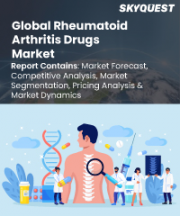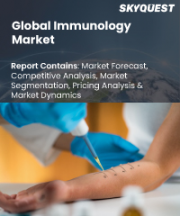
|
시장보고서
상품코드
1593744
류마티스 관절염 치료제 시장 평가 : 분자 유형별, 약물 종류별, 판매 채널별, 지역별 기회 및 예측(2017-2031년)Rheumatoid Arthritis Therapeutics Market Assessment, By Type of Molecule, By Drug Class, By Sales Channel, By Region, Opportunities and Forecast, 2017-2031F |
||||||
세계 류마티스 관절염 치료제 시장 규모는 2023년 300억 5,000만 달러에서 예측 기간 동안 연평균 5.58%의 CAGR로 2031년 463억 9,000만 달러로 성장할 것으로 예상됩니다.
류마티스 관절염 시장의 성장은 류마티스 관절염 환자 수의 증가, 질환에 대한 이해를 높이기 위한 연구 활동의 증가, 전 세계 여러 규제 기관의 승인 증가에 힘입어 성장하고 있습니다. 고령 인구의 증가도 류마티스 관절염 환자 수를 증가시키고 있습니다. 세계보건기구(WHO)의 추산에 따르면, 2030년까지 전 세계 인구 6명 중 1명이 60세 이상이 될 것이며, 2050년에는 약 21억 명이 60세 이상이 될 것으로 예상하고 있습니다. 류마티스 관절염은 활액관절에 염증을 일으켜 장기간에 걸쳐 기능 저하와 관절 손상을 초래하는 질환입니다.
또한, 다양한 규제 기관의 류마티스 관절염 치료제 승인 증가로 인해 전 세계 환자들이 필요한 약품에 접근할 수 있게 됐습니다.
또한, 유사한 치료 효과를 가진 바이오시밀러의 수용이 확대되면서 세계 류마티스 관절염 치료제 시장의 규모를 강화하고 있습니다. 주요 제약사들은 새로운 바이오시밀러 및 생물학적 제제의 승인 및 개발에 적극적으로 투자하고 있으며, 이는 시장 성장에 긍정적인 영향을 미치고 있습니다. 또한, 전 세계 다양한 연구기관과 신규 진입자들이 기존 치료제보다 부작용이 적은 새로운 치료법 개발에 적극적으로 투자하고 있습니다. 또한, 각자가 보유한 자원과 전문 지식을 공유하며 공동 연구에도 힘쓰고 있습니다.
세계 류마티스 관절염 치료제 시장을 조사했으며, 시장 정의와 개요, 시장 규모 추정 및 예측, 각종 부문별·지역별·주요 국가별 상세 분석, 산업 구조, 시장 성장에 영향을 미치는 요인 분석, 사례 연구, 경쟁 상황, 주요 기업 프로파일 등의 정보를 정리하여 전해드립니다.
목차
제1장 프로젝트 범위와 정의
제2장 조사 방법
제3장 주요 요약
제4장 세계의 류마티스 관절염 치료제 시장 전망
- 시장 규모 분석과 예측
- 시장 점유율 분석과 예측
- 분자 유형별
- 약물 종류별
- 판매 채널별
- 지역별
- 기업별 시장 점유율 분석
- 마켓 맵 분석
제5장 북미의 류마티스 관절염 치료제 시장 전망
- 시장 규모 분석과 예측
- 시장 점유율 분석과 예측
- 국가별 시장 평가
- 미국
- 캐나다
- 멕시코
제6장 유럽의 류마티스 관절염 치료제 시장 전망
- 독일
- 프랑스
- 이탈리아
- 영국
- 러시아
- 네덜란드
- 스페인
- 터키
- 폴란드
제7장 아시아태평양의 류마티스 관절염 치료제 시장 전망
- 인도
- 중국
- 일본
- 호주
- 베트남
- 한국
- 인도네시아
- 필리핀
제8장 남미의 류마티스 관절염 치료제 시장 전망
- 브라질
- 아르헨티나
제9장 중동 및 아프리카의 류마티스 관절염 치료제 시장 전망
- 사우디아라비아
- UAE
- 남아프리카공화국
제10장 수급 분석
제11장 밸류체인 분석
제12장 Porter's Five Forces 분석
제13장 PESTLE 분석
제14장 가격 분석
제15장 시장 역학
- 시장 성장 촉진요인
- 시장 과제
제16장 시장 동향·전개
제17장 규제 프레임워크·혁신
- 임상시험
- 규제 당국 승인
제18장 특허 상황
제19장 사례 연구
제20장 경쟁 상황
- 시장 리더 상위 5개사 경쟁 매트릭스
- 상위 5개사 SWOT 분석
- 상위 10개사 상황
- AbbVie Inc.
- Pfizer Inc.
- Bristol Myers Squibb Company
- Novartis AG
- F. Hoffmann-La Roche Ltd
- Amgen Inc.
- Bayer AG
- Boehringer Ingelheim International GmbH
- Eli Lilly and Company
- Johnson & Johnson Services, Inc.
제21장 전략적 제안
제22장 당사 소개와 면책사항
ksm 24.11.27Global rheumatoid arthritis therapeutics market is projected to witness a CAGR of 5.58% during the forecast period 2024-2031, growing from USD 30.05 billion in 2023 to USD 46.39 billion in 2031. The market's growth is bolstered by the rising cases of rheumatoid arthritis, increasing research activities to improve the understanding of the disease, and growing approvals from different regulatory bodies across the globe. The expansion of the geriatric population is also augmenting the cases of rheumatoid arthritis. As per the World Health Organization (WHO) estimates, one in six people across the globe will be sixty or older by 2030, and by 2050, approximately 2.1 billion people will be sixty or older. Rheumatoid arthritis affects the synovial joints and causes inflammation that can result in loss of function and joint damage over a period of time.
Additionally, increasing the provision of approvals for drugs for rheumatoid arthritis by different regulatory bodies ensures that patients worldwide have access to the necessary medication. In October 2024, Alfasigma S.p.A. received the green light for the commercialization of Jyseleca, a JAK1 drug used for ulcerative colitis and rheumatoid arthritis, following the approval received from the European Medicines Agency. The transfer of marketing authorization for the drug in the European Union was completed after the company purchased the medication for USD 186 million.
Moreover, the growing acceptance of biosimilars, the economically efficient alternatives to biologic drugs with similar therapeutic effects, bolsters the global rheumatoid arthritis therapeutics market size. Major pharmaceutical companies actively invest in approving and developing new biosimilars and biologics, positively influencing the market's growth. Additionally, different research organizations and market players across the globe are actively investing in developing novel therapies that offer fewer side effects than traditional therapies. They also engage in collaborations by pooling their resources and expertise; the organizations can reduce the time required for drug development and easily address the unmet medical requirements of the patients.
Increasing Prevalence of Rheumatoid Arthritis Boosts Market Demand
The rising cases of rheumatoid arthritis can be attributed to the expansion of the aging population and changing lifestyles. The increasing disease burden is augmenting the global demand for rheumatoid arthritis therapeutics. As per the estimates of Johns Hopkins University & Medicine, rheumatoid arthritis has a prevalence of 1% to 2%, along with a worldwide distribution. The prevalence of the disease is approaching 5% among women who are older than 55. Autoimmune disease is characterized by the inflammation of joint tissue and exhibits deformation of small joints, pain, and swelling in approximately half of the patient population. Additionally, the development and availability of sensitive testing methods allow patients to receive an early diagnosis, further propelling the requirement for rheumatoid arthritis therapeutics. After the detection of the condition, early treatments such as immunosuppressive drug therapy and nonsteroidal anti-inflammatory drugs are initiated. Additionally, women are more susceptible to the disease as the female immune cells produce more inflammatory cytokines, proteins that control immune cell activity and control inflammation.
Investments in Research Activities Support Market Expansion
The increasing emphasis on research activities for addressing the complexities of the disease and the discovery of novel treatments is aiding researchers in developing advanced therapeutic solutions for rheumatoid arthritis and providing lucrative growth opportunities to the market. One of the promising research areas in the disease is the exploration of biological agents that are responsible for targeting unique immune pathways that play a role in inflammation. In July 2024, SetPoint Medical Corporation announced positive topline results for the RESET-RA clinical study. The clinical study evaluates the use of the SetPoint System as a potential neuroimmune modulation treatment for individuals with moderate to severe rheumatoid arthritis who are intolerant to targeted synthetic or biologic disease-modifying anti-rheumatic drugs or incomplete responders. A significant portion of the patient population suffering from rheumatoid arthritis is either intolerant to the approved treatment options available or adequately responding to them. Moreover, the approved immunotherapies also have severe immunosuppressive risks that can result in low treatment adherence, safety concerns, and poor patient satisfaction. Such clinical research studies are expected to augment the development of therapeutic systems that improve treatment outcomes by increasing patient adherence, among others.
Biopharmaceuticals Account for Significant Market Share
The segment's expansion can be attributed to the increasing research studies showcasing the different benefits associated with various biopharmaceuticals. According to an article published in the JAMA Network of the American Medical Association in June 2024, treatment sequences initiated by biosimilar disease-modifying antirheumatic drugs (DMARDs) were shown to be cost-effective in comparison with treatment sequences initiated with leflunomide in patients suffering from rheumatoid arthritis as per a study conducted by a team of researchers from the University of Hong Kong. Such studies highlight the financial feasibility and benefits associated with biosimilar drugs, resulting in their increasing demand.
Additionally, the comparative effectiveness analysis published in the Rheumatology Journal of the Oxford University Press in September 2023 showed that patients who were switched from etanercept originator to biosimilar had similar drug persistence and disease activity as those patients who remained on the originator, thus indicating nonmedical switching does not have a detrimental effect on treatment outcomes. The study was conducted with the help of data from the British Society for Rheumatology Biologics Register for Rheumatoid Arthritis (BSRBR-RA), which tracks patients with rheumatoid arthritis who start targeted or biologic DMARDs.
North America Holds Major Market Share
The expansion of the market in North America can be attributed to the growing prevalence of rheumatoid arthritis in the region, the strong presence of leading market players and research organizations, the rapid growth of the aging population, and the growing emphasis on personalized healthcare. As per the estimates of Johns Hopkins University & Medicine, the average annual incidence of rheumatoid arthritis in the United States is 70 per 100,000 annually. Additionally, the United States Food and Drug Administration (USFDA) is providing approvals for generic drugs for rheumatoid arthritis to increase patient access. In August 2023, Zydus Lifesciences Limited received final approval from the USFDA for manufacturing and marketing their generic suppositories indicated for moderate to severe rheumatoid arthritis. Approval has been given to Zydus for marketing and manufacturing their Indomethacin suppositories at 50 mg strength. Indomethacin suppositories are anti-inflammatory and non-steroidal drugs indicated for rheumatoid arthritis, including moderate to severe ankylosing spondylitis, acute flares of chronic disease, moderate to severe osteoarthritis, acute gouty arthritis, and acute painful shoulder. Additionally, the rising investments from the leading market players in the region towards novel product development and launches and enhancement of their research and development capabilities are further propelling the availability of novel therapeutic solutions in North America, providing lucrative growth opportunities to the rheumatoid arthritis therapeutics market.
Future Market Scenario (2024-2031F)
As per the global rheumatoid arthritis therapeutics market analysis, the market is expected to witness significant growth in the coming years due to the rising cases of rheumatoid arthritis, increasing awareness about the different treatment options, increasing innovation in therapies, and rising shift towards personalized medicines. According to the estimates of an article published in The Lancet of Elsevier Ltd. in October 2023, the number of cases of rheumatoid arthritis is forecasted to increase by 80.2% between 2020 and 2050, and 31.7 million individuals will be living with the disease by 2050 across the globe. Additionally, different healthcare and government organizations are also working on increasing awareness about the impact of treatment adherence and early diagnosis on patients with rheumatoid arthritis.
Moreover, various healthcare organizations are also investing in treatment programs for healthcare professionals to ensure they are updated on the advancements in the treatments for rheumatoid arthritis. Such efforts are expected to bolster the demand for the global rheumatoid arthritis therapeutics market in the coming years. Regulatory bodies, healthcare professionals, and pharmaceutical companies are expected to play a crucial role in allowing for a patient-centric and effective approach to treating rheumatoid arthritis and ensuring the availability of the required therapeutic solutions.
Key Players Landscape and Outlook
Various market players are actively working on increasing the affordability of drugs for treating rheumatoid arthritis and boosting their production. In December 2023, the Institute of Drug Technology (Farmanguinhos/Fiocruz) and Pfizer Inc. signed a technology transfer agreement for producing the generic version of Xeljanz, tofacitinib citrate. The partnership aims to increase the public's access to medications necessary for treating immune-mediated inflammatory diseases, including rheumatoid arthritis, and strengthen national production. Such partnerships are expected to improve the patient population's access to healthcare and pharmaceutical products and services in developing countries.
Additionally, in September 2024, Eva Pharma and Eli Lilly and Company announced that they had entered an agreement to enhance access to baricitinib to patients in low-to-middle-income countries in Africa. Under the agreement, the companies aim to provide 20,000 African patients access to the drug by 2030. Baricitinib is used to treat atopic dermatitis, rheumatoid arthritis, and alopecia areata, among others. The collaboration is also a part of Eli Lilly's 30x30 initiative, which aims to improve access to healthcare facilities for 30 million individuals living in resource-limited areas.
Table of Contents
1. Project Scope and Definitions
2. Research Methodology
3. Executive Summary
4. Global Rheumatoid Arthritis Therapeutics Market Outlook, 2017-2031F
- 4.1. Market Size Analysis & Forecast
- 4.1.1. By Value
- 4.2. Market Share Analysis & Forecast
- 4.2.1. By Type of Molecule
- 4.2.1.1. Biopharmaceuticals
- 4.2.1.1.1. Biologics
- 4.2.1.1.2. Biosimilars
- 4.2.1.2. Pharmaceuticals
- 4.2.1.1. Biopharmaceuticals
- 4.2.2. By Drug Class
- 4.2.2.1. Non-steroidal Anti-inflammatory Drugs (NSAIDs)
- 4.2.2.2. Corticosteroids
- 4.2.2.3. Disease-Modifying Antirheumatic Drugs (DMARDs)
- 4.2.2.4. Janus Kinase (JAK) Inhibitors
- 4.2.2.5. Biologic Agents
- 4.2.2.6. Others
- 4.2.3. By Sales Channel
- 4.2.3.1. Prescription
- 4.2.3.2. Over the Counter (OTC)
- 4.2.4. By Region
- 4.2.4.1. North America
- 4.2.4.2. Europe
- 4.2.4.3. Asia-Pacific
- 4.2.4.4. South America
- 4.2.4.5. Middle East and Africa
- 4.2.5. By Company Market Share Analysis (Top 5 Companies and Others - By Value, 2023)
- 4.2.1. By Type of Molecule
- 4.3. Market Map Analysis, 2023
- 4.3.1. By Type of Molecule
- 4.3.2. By Drug Class
- 4.3.3. By Sales Channel
- 4.3.4. By Region
5. North America Rheumatoid Arthritis Therapeutics Market Outlook, 2017-2031F*
- 5.1. Market Size Analysis & Forecast
- 5.1.1. By Value
- 5.2. Market Share Analysis & Forecast
- 5.2.1. By Type of Molecule
- 5.2.1.1. Biopharmaceuticals
- 5.2.1.1.1. Biologics
- 5.2.1.1.2. Biosimilars
- 5.2.1.2. Pharmaceuticals
- 5.2.1.1. Biopharmaceuticals
- 5.2.2. By Drug Class
- 5.2.2.1. Non-steroidal Anti-inflammatory Drugs (NSAIDs)
- 5.2.2.2. Corticosteroids
- 5.2.2.3. Disease-Modifying Antirheumatic Drugs (DMARDs)
- 5.2.2.4. Janus Kinase (JAK) Inhibitors
- 5.2.2.5. Biologic Agents
- 5.2.2.6. Others
- 5.2.3. By Sales Channel
- 5.2.3.1. Prescription
- 5.2.3.2. Over the Counter (OTC)
- 5.2.4. By Country Share
- 5.2.4.1. United States
- 5.2.4.2. Canada
- 5.2.4.3. Mexico
- 5.2.1. By Type of Molecule
- 5.3. Country Market Assessment
- 5.3.1. United States Rheumatoid Arthritis Therapeutics Market Outlook, 2017-2031F*
- 5.3.1.1. Market Size Analysis & Forecast
- 5.3.1.1.1. By Value
- 5.3.1.2. Market Share Analysis & Forecast
- 5.3.1.2.1. By Type of Molecule
- 5.3.1.2.1.1. Biopharmaceuticals
- 5.3.1.2.1.1.1. Biologics
- 5.3.1.2.1.1.2. Biosimilars
- 5.3.1.2.1.2. Pharmaceuticals
- 5.3.1.2.2. By Drug Class
- 5.3.1.2.2.1. Non-steroidal Anti-inflammatory Drugs (NSAIDs)
- 5.3.1.2.2.2. Corticosteroids
- 5.3.1.2.2.3. Disease-Modifying Antirheumatic Drugs (DMARDs)
- 5.3.1.2.2.4. Janus Kinase (JAK) Inhibitors
- 5.3.1.2.2.5. Biologic Agents
- 5.3.1.2.2.6. Others
- 5.3.1.2.3. By Sales Channel
- 5.3.1.2.3.1. Prescription
- 5.3.1.2.3.2. Over the Counter (OTC)
- 5.3.1.2.1. By Type of Molecule
- 5.3.1.1. Market Size Analysis & Forecast
- 5.3.2. Canada
- 5.3.3. Mexico
- 5.3.1. United States Rheumatoid Arthritis Therapeutics Market Outlook, 2017-2031F*
All segments will be provided for all regions and countries covered
6. Europe Rheumatoid Arthritis Therapeutics Market Outlook, 2017-2031F
- 6.1. Germany
- 6.2. France
- 6.3. Italy
- 6.4. United Kingdom
- 6.5. Russia
- 6.6. Netherlands
- 6.7. Spain
- 6.8. Poland
7. Asia-Pacific Rheumatoid Arthritis Therapeutics Market Outlook, 2017-2031F
- 7.1. India
- 7.2. China
- 7.3. Japan
- 7.4. Australia
- 7.5. Vietnam
- 7.6. South Korea
- 7.7. Indonesia
- 7.8. Philippines
8. South America Rheumatoid Arthritis Therapeutics Market Outlook, 2017-2031F
- 8.1. Brazil
- 8.2. Argentina
9. Middle East and Africa Rheumatoid Arthritis Therapeutics Market Outlook, 2017-2031F
- 9.1. Saudi Arabia
- 9.2. UAE
- 9.3. South Africa
- 9.4. Israel
10. Demand Supply Analysis
11. Value Chain Analysis
12. Porter's Five Forces Analysis
13. PESTLE Analysis
14. Pricing Analysis
15. Market Dynamics
- 15.1. Market Drivers
- 15.2. Market Challenges
16. Market Trends and Developments
17. Regulatory Framework and Innovation
- 17.1. Clinical Trials
- 17.2. Regulatory Approvals
18. Patent Landscape
19. Case Studies
20. Competitive Landscape
- 20.1. Competition Matrix of Top 5 Market Leaders
- 20.2. SWOT Analysis for Top 5 Players
- 20.3. Key Players Landscape for Top 10 Market Players
- 20.3.1. AbbVie Inc.
- 20.3.1.1. Company Details
- 20.3.1.2. Key Management Personnel
- 20.3.1.3. Products and Services
- 20.3.1.4. Financials (As Reported)
- 20.3.1.5. Key Market Focus and Geographical Presence
- 20.3.1.6. Recent Developments/Collaborations/Partnerships/Mergers and Acquisitions
- 20.3.2. Pfizer Inc.
- 20.3.3. Bristol Myers Squibb Company
- 20.3.4. Novartis AG
- 20.3.5. F. Hoffmann-La Roche Ltd
- 20.3.6. Amgen Inc.
- 20.3.7. Bayer AG
- 20.3.8. Boehringer Ingelheim International GmbH
- 20.3.9. Eli Lilly and Company
- 20.3.10. Johnson & Johnson Services, Inc.
- 20.3.1. AbbVie Inc.
Companies mentioned above DO NOT hold any order as per market share and can be changed as per information available during research work.



















